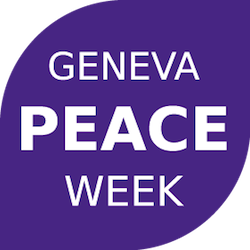Safer internet for children, mitigation of conflicts and language and communication for peace
13 Nov 2017 01:00h
Event report
The session was opened by Ms Hang Nguyen, Secretary General at the Diplomatic Council. She reminded the audience about the work of the Diplomatic Council: being a think-tank, business, and a charity foundation at the same time, the council carries out multiple programmes, including in the fields of fight against child pornography and ending violence against women. In particular, she presented the ‘Diplomatic Council Safer Internet for Children’ Initiative, which is a partner of the White IT project which was initiated by the German State of Lower Saxony and stands up for the prevention (together with offering a service support to victims) of sexualised violence against children and its representation in the digital world.
Mr Thorsten Nowak, Chairman of the White IT Project at the Ministry of the Interior of Lower Saxony (Germany), stated that the core of this project is to prevent child abuse. He said that this is a challenge as it is estimated that about 1% to 4% of the entire male population has paedophile tendencies and that children often suffer sexual incidents in the course of growing up. He further explained that about 50% of the consumption of abuse content is outside social control. Nowak explained that multiple strategies are now being taken in order to tackle such issues. For example, they offer a self-prophylaxis tool (i.e. auto-denouncing service for paedophiles), publications of materials, and deployment of virtual reality app in order to raise awareness among children. Furthermore, they conduct studies on child abuse legislation in different countries in order to identify ‘the world’s most common legal denominator’ for the crime of child abuse.
Dr Klaus-Ulrich Moeller, Chairman at the Diplomatic Council Global Speaking Forum focused on the importance of speech for peace, because he considered that ‘the way of communicating in public is one of the strongest drivers for peace or for hate’. He added that there is a lack of standards in addressing false information, which often results in the fact that fake news is given the same importance as validated information. He introduced the council’s Code of Trusted Public Communication as a code of conduct, comprising the most significant principles for trust-building in communication and information in the public sphere. The reasons for this code are twofold: on the one hand, governments and regulations alone cannot solve such issues; and on the other hand, hate speech is not a transitional phenomenon, but rather the result of a dramatic transformation of our societies. Moeller considered that with the use of the Internet, ‘democracy 4.0’ encompasses five dimensions: to the traditional three traditional branches of power (legislative, judiciary, executive) we ought to add press and individuals who use social media platforms, not only to communicate but also to get information and build their opinions. In order to address hate speech in the social media era, he considered that seven dimensions need to be addressed and taken into account:
- Responsibility of the individual: Internet users not only consume content but they also produce it. It follows that individuals bear responsibility for the content they create which respectively contributes to creating other people’s opinion.
- Respectful language: the importance of social conventions and politeness are paramount in off-line life as well as for online social interactions.
- No state intervention: states cannot control public opinion, rather it is a matter of individual responsibility (for the production of online content) and the private sector.
- Open climate: repression of public opinion is not a solution of hate speech.
- No anonymity: as individuals bear responsibility for the content they produce, anonymity would hinder users’ accountability.
- Communications skills: this aspect is linked to the use of respectful language as it is important not only what we say but how we say it.
- Reflection: tackling hate speech should be accompanied by serious reflection on the strategies and actions to be taken. In particular, Moeller pushed for better education regarding digital skills starting in schools, for the inclusion of such issues in MBA and graduate curricula. Finally, he encouraged scientific research about public language and on how communication can influence the peace process.
Mr Jamal Qaiser, Diplomatic Council Commissioner for UN Affairs, concluded the session by agreeing with Moeller’s argument that language is indeed a strong drive for either peace or conflict, and he further added that countries’ economic behaviour also strongly influences this relationship. In particular, he reflected on the fact that economic isolation is a strong peace-threatening factor and economic sanctions are perceived as ‘an act of war’.
Related topics
Related event

